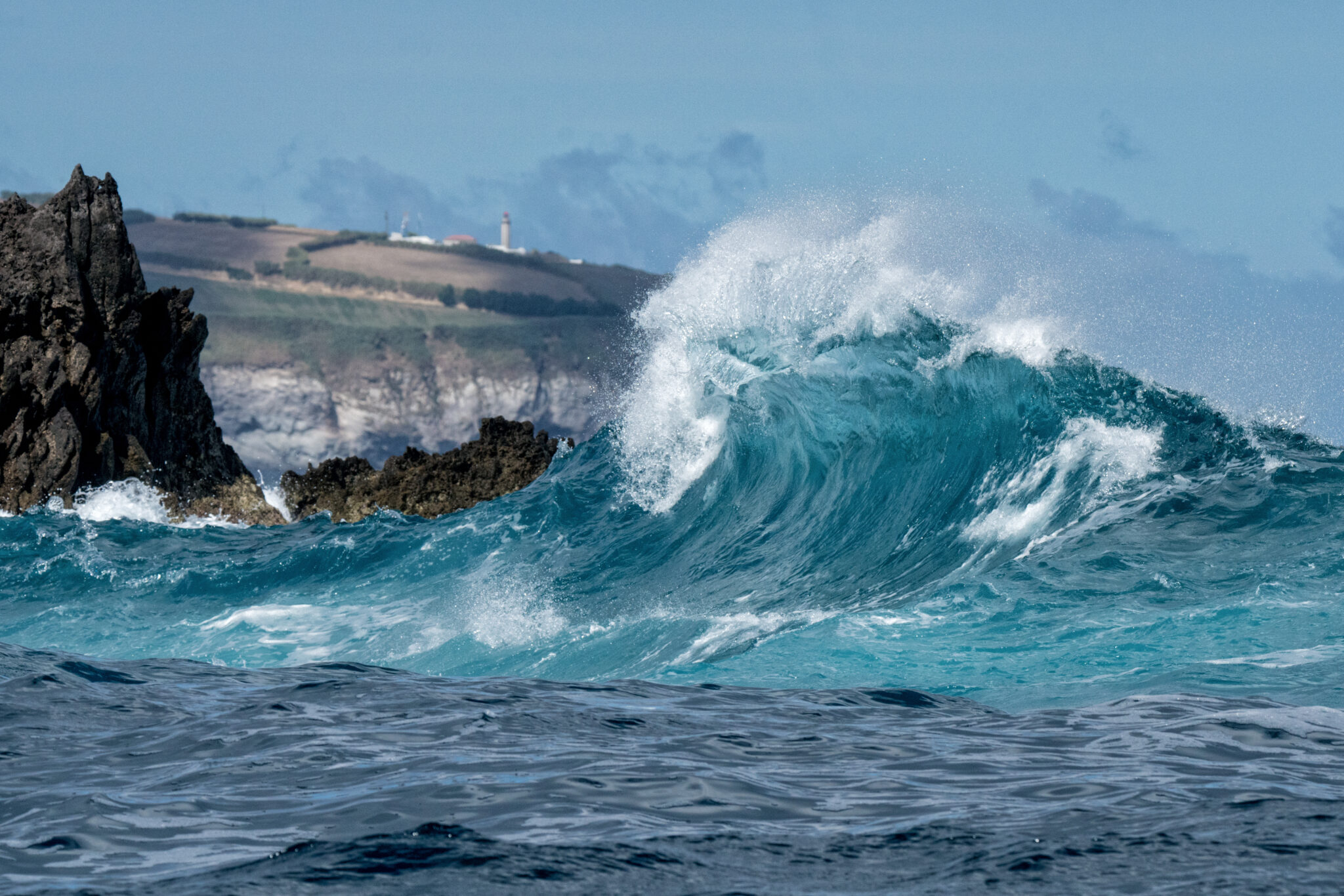IUCN Digest

Welcome to the bi-weekly digest for IUCN Members and IUCN Commission members.
Message from the Director General
| 
Dear Members,
I have just returned from meeting State, government agency and NGO Members in Jordan and Saudi Arabia. West Asia is a beautiful but fragile region, one that is warming up twice as quickly as the rest of the planet. Nature conservation is especially critical there, and I was inspired by the work of our Members to build a sustainable future there. My thanks goes to our West Asia office for their support. I am also grateful to government agency Member, The Royal Commission of AlUla, for the cooperation (pictured) and hosting our Regional Directors in-person meeting. Dear Members, I take this opportunity to also remind us all that the countdown to the inaugural IUCN Leaders Forum:Building nature-positive economies and societies in Jeju, Republic of Korea, is on. We are very excited about this new convening, which will help us contribute to the global policy debate in between IUCN Congresses. I am also grateful to our State Member, the Republic of Korea, for hosting us. The latest version of the programme can be found on our website, here. I look forward to seeing many of you there.
News
| IUCN News pages Gender and Climate Awards – Promoting the inclusion and leadership of women in climate action Brackets on our future IUCN launch Climate Change Gender Action Plan in Gilgit Baltistan Awareness and educational materials unveiled to promote sustainable ocean management Meet with inspiring PANORAMA Solution Providers: Ayanda Cele, Responsible for Land Reform and Biodiversity Stewardship Programme at WWF South Africa IUCN helps protect Vjosa in Albania, the last wild free-flowing river in Europe A new take on Health & Safety for community tourism in a post-COVID era in Cuc Phuong National Park and Van Long Wetlands Nature Reserve (Viet Nam) IUCN mourns the loss of leading conservationist Gustavo Fonseca Key takeaways from treaty negotiations for Biodiversity Beyond National Jurisdiction (BBNJ), United Nations HQ, New York High seas biodiversity will have to wait… |
Events
IUCN Events Protecting Nature on Mediterranean islands, Malaga, Spain, 27 September 2022 2022 Oslo International Environmental Law Conference, Oslo, Norway, 3-6 October 2022 IUCN Leaders Forum: See full programme, Jeju Province, South Korea, 13-15 October 2022 5th International Marine Protected Areas Congress (IMPAC5) 3-9 February 2023 UNESCO 45th session of the World Heritage Committee, postponed until further notice. The publication of official documents, including IUCN recommendations, will be established by UNESCO in accordance with the Rules of Procedure at the appropriate time.
Interview with Ludovic Larbodière, Focal Point for Resolution 007

Ludovic LarbodièreSenior Expert for Agriculture and EnvironmentContact: ludovic.larbodiere@iucn.org
IUCN is getting ready for the Fifteenth meeting of the Conference of the Parties to the Convention on Biological Diversity (CBD COP15) and will contribute to the discussions on the Post-2020 Global Biodiversity Framework, including on sustainable agriculture (Target 10). After the adoption of the framework, identifying concrete actions to put it into effect will be key for its success. The Union is already working on this aspect, including through the implementation of Resolution 7.007 Developing agroecological practices as nature-based solutions. Resolution 7.007 requests IUCN’s Secretariat to prepare a report on agroecological practices as Nature-based Solutions (NbS) and to support the dissemination and implementation of such practices in its projects and programmes. It recommends States and other actors promote the adoption of agroecological practices as NbS and to integrate them into their national policies, as part of sustainable food systems, and invites farmers and the industry to contribute to this transition as well. To get a better sense of how the Union is implementing this Resolution, we interviewed Ludovic Larbodière, Senior Expert for Agriculture and Environment at IUCN and Secretariat Focal Point for this Resolution. Ludovic, can you explain us why this resolution is important for IUCN and to stakeholders, in particular, farmers? Many agroecological approaches are available and have proven successful. For instance, the use of auxiliary insects, such as beetles, could be used as a biological pest control. Increasing plant diversity in agricultural systems, can also help foster soil microbial diversity and increase crop yield. Finally, pluri-annual crop rotation is another example of agricultural practice that can be highly advantageous since it reduces erosion, improves soil’s health, increases nutrients and reduces the amount of the pest population present in the soil. These are some of the many agroecological practices that should be promoted and incentivized. We want IUCN to lead the reflexion on how best to define and implement Nature-based Solutions in agriculture. Can you tell us how the Secretariat is implementing the Resolution? Part of the work we do on this Resolution falls under the Agriculture and Land Health Initiative, which aims to accelerate action towards sustainable agriculture that addresses major societal challenges such as food security, climate change and biodiversity loss. Concretely, we have raised funds from AFD, IKEA Foundation and Pernod Ricard to support the initiative, and launch a series of studies and initiatives in 6 countries. For example, we have started a study to analyse “agroecological approaches as Nature-based Solutions”, that will help identify the differences and similarities between Agroecology and NbS concepts, and the practices we can consider as NbS in agriculture, providing concrete examples and case-studies. We are also developing a sectoral application of the NbS Standard in agriculture that will provide a concrete tool to design and assess projects. The tool will be tested and agroecological practices will be disseminated in 6 countries: India, Vietnam, Rwanda, Tanzania, Burkina-Faso and Guatemala. These activities will be developed until the end of 2024. The Resolution does not only request action from the Secretariat, but from the whole Union, including Members. How do you think they could contribute? The Resolution requests States and other actors to develop, promote and incentivise the adoption of agroecological practices as NbS. Our action on the ground will set-up multi-stakeholder consultations that will help guide States members and other actors on the best policies and strategies to promote NbS on the ground. More widely, we feel the need to mobilize further IUCN Members on our work. We have the intention to invite early next year all IUCN Members interested in agriculture to get their feedback on how they are advancing on the resolution, and their suggestions for the future. A perfect entry-point to build synergies and a common vision. Resolutions and Recommendations constitute a means through which IUCN Members set the organization’s general policy, influence conservation priorities and find support for moving commitments into action. All IUCN Resolutions are available on the Resolutions and Recommendations Platform. Help us monitor the implementation of IUCN Resolutions by submitting an activity report on theResolutions and Recommendations Platform! Many thanks for your contributions. Everything you need to know to submit an activity report is in thisUser Guide. |
| Post 2020 Global Biodiversity Framework |
| ————————————— |
| IUCN’s work on the Post-2020 global biodiversity framework First draft of the post-2020 Global Biodiversity Framework Post-2020 global biodiversity framework (issues brief) |
| BIODEV2030 – Inspiring national action |
| ————————————– |
|  |
|
| Through the use of strategy games, IUCN is working with key economic actors in Senegal to build an ambitious and shared vision for biodiversity and sustainable development. Read more…. |
| UN Decade on Ecosystem Restoration |
| ———————————- |
| Science-based ecosystem restoration for the 2020s and beyond (publication) UN Decade on Ecosystem Restoration website |
| Opportunities |
| ————- |
| Work @ IUCN Multi-species Program Officer. IUCN SSC Conservation Planning Specialist Group. Deadline for application: 30 September 2022 Single-species Risk Assessment and Conservation Planning Program Officer. IUCN SSC Conservation Planning Specialist Group. Deadline for application: 30 September 2022 IUCN Save Our Species – Calls for Proposals for Conservations Grants and Research Support Grants – Fondation Segré Conservation Action Fund. Deadline: 3 October 2022 Call for solutions on Wildlife Health and Zoonotic Disease Risk Reduction Call for Solutions on Tourism Best Practices A Challenge to Reimagine Conservation in 2022 Currently running tenders |
| Online Learning and Webinars |
| —————————- |
| Blue Natural Capital Financing Facility (BNCFF) – Investing for Ocean Impact, Podcast Webinar: NASA’s Applied – Evaluating Ecosystem Services with Remote Sensing – online series IUCN Webinar Series – The last sprint to COP 15 GBV-ENV Center webinar: Engaging men and boys to address GBV in coastal biodiversity management 2022 RedList trainer course – Become a certified RedList trainer Webinar: How to apply the IUCN Red List Criteria for National Red List assessments IUCN SSC Human-Wildlife Conflict Task Force Briefing Paper – Perspectives on Human-Wildlife Coexistence Learning in Practice Webinar Series: Engagement and Ethics of Working with Communities Reverse the Red – Conservation Funding for Local Action and Impact IUCN – Save Our Species IUCN – Papaco (IUCN Programme on African Protected Areas & Conservation) – Massive Open Online Courses (MOOC) Future Learn – IUCN Red List of Ecosystems SSC – ReversetheRed CEC – #NatureForAll – Discovery Zone Online Resources The Smithsonian Science Education Center – Distance Learning. Human-Wildlife Conflict & Coexistence Case Studies |
| IUCN SSC CPSG training opportunities (Conservation Planning Specialist Group – Species Survival Commission) |
| ———————————————————————————————————– |
| Register for forthcoming Species Conservation Planning training from CPSG: Facilitating Species Conservation Planning Workshop in-person training (Georgia Aquarium, USA, 19-23 September 2022) Facilitating Species Conservation Planning Workshops in-person training (SECAM, Seville, Spain, 7-11 November 2022) Wildlife Disease Risk Analysis online course (24 October-16 December 2022) Ex situ Conservation Assessment online course (Self-paced, start date 10th October 2022) |
| Newsletters |
| ———– |
| Commission on Education and Communication (CEC) – Newsletter June 2022 Commission on Environmental, Economic and Social Policy (CEESP) – Newsletter August 2022 Commission on Ecosystem Management (CEM) – Newsletter June 2022 Invitation| RtR Webinar: National Red List Indexes: Why do we need to produce them and how should we go about it, September 21st Australian Committee for IUCN Spring 2022 Newsletter |
| Other |
| —– |
| Latest IUCN Publications Membership Info Guide International Union for Conservation of Nature: Central and West Africa Regional Office Annual Report 2021 (in French) Guidelines for using A global standard for the identification of Key Biodiversity Areas : version 1.2 Enhancing the integration of governance in forest landscape restoration opportunities assessments Guidance and toolkit for impact assessments in a World Heritage context Subscribe to IUCN Newsletters IUCN Blog – Crossroads – Latest blog – Applying the lessons of climate change to halting biodiversity loss |
| |
| |
| Support IUCN |
| This Digest aims to keep IUCN Members, IUCN staff, IUCN Commission memberand the wider IUCN network up-to-date with IUCN information and opportunities. Subscribe to an IUCN Thematic, Regional or Commission Newsletter Please do not unsubscribe from this email as by doing this you are unsubscribedfrom all future IUCN mailings. International Union for Conservation of Nature (IUCN) © 2022 |
| Unsubscribe | Forward to a friend 
 |
|



